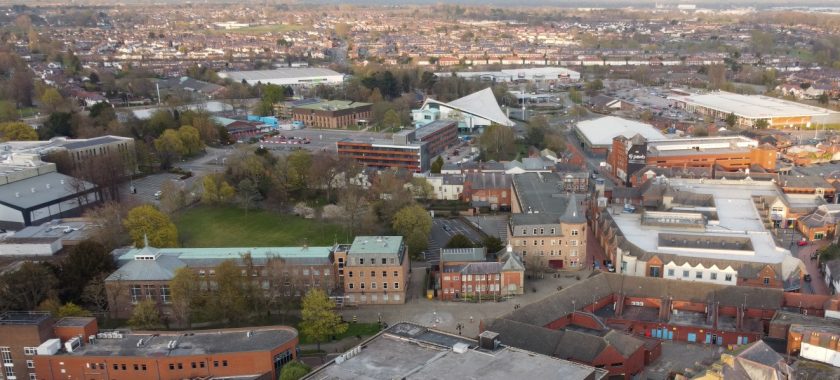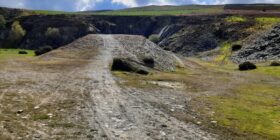Survey of all council buildings taking place in Wrexham over Reinforced Autoclaved Aerated Concrete risks

Wrexham Council are surveying all council buildings to discover if and where ‘RAAC’ exists.
Reinforced Autoclaved Aerated Concrete (RAAC) is a material used in construction in many buildings between the 1960s and 1990s. Its presence has been confirmed in a range of public sector properties across the UK including schools and hospitals.
Wrexham Council issued the short statement below on RAAC locally this afternoon:
We are currently undertaking a survey of all of our buildings in order to identify where this material may exist. This work is prioritising schools in the first instance..
We are working to extremely tight timelines and will be in a position to report our findings back to Welsh Government by the deadline of 13 September
At this in moment time all our schools remain open as usual.
Members have been updated about the situation and we will give a further update once the survey is complete.
We have asked Wrexham Council if certain buildings are safe for staff and visitors and will update if and when we have a reply.
Four days ago Jeremy Miles MS, Minister for Education and Welsh Language issued a longer statement on the topic, and we understand there will be a fresh update from Welsh Government ‘soon’ :
In Wales, local authorities were made aware of the potential issue with RAAC through the Welsh Local Government Association (WLGA) in February 2020 following a safety alert published in 2019 by the Standing Committee on Structural Safety (SCOSS). Local Authorities have a statutory duty to assess condition and safety risks including structural integrity for all buildings within their school estate and to maintain records.
Details of any instance or awareness of RAAC is being requested as part of the annual education data collection exercise and, since March this year, we have been working closely with local authorities and the WLGA. A number of local authorities have completed their school estate review and it is underway in others. In May, we commissioned a condition and energy survey of all state funded schools and colleges. The nature of the survey would highlight any structures suspected of containing RAAC for further inspection by specialist structural engineers.
In July 2023 the UK Cabinet Office established the Cross-Government Reinforced Autoclaved Aerated Concrete (RAAC) Working Group, extending an invitation to the Welsh Government on the 21 August. A Welsh Government official attended the Working Group’s second meeting on 24 August. No new evidence in respect of RAAC risks or its management were raised at this meeting.
On 31 August 2023 the UK Government announced new guidance on RAAC in education settings. Since then, UK Government Ministers have repeatedly stated that a number of incidents happened over the Summer period which led to there being a heightened safety risk regarding the usage of RAAC. At no point was this new evidence flagged to the Welsh Government.
During discussions on 1 September, the UK Government verbally shared some of this new evidence. Despite repeated requests, we were not sent the new evidence in writing, until last night.
Last night (Sunday) at 18.57, the UK Government sent some of the evidence that we have repeatedly requested. It is hugely regrettable that the evidence that has apparently been developed over the summer has been withheld until the night before the first day back of term. It is also incomplete, leaving us without the full rationale for the DfE’s sudden policy change towards the management of RAAC in schools. We continue to request detailed structural engineer reports that clearly set out the timeline and technical analysis of events leading up to last Thursday’s announcement of school closures. This can then be reviewed by officials and shared with local authorities who have statutory responsibility for school buildings in Wales.
While only partial, the new evidence indicates that there may need to be a change in the approach towards how RAAC safety is undertaken and the health and safety management approach we may need to take.
In response to last week’s announcement in England, we have been in contact with all local authorities in Wales over recent days. In these discussions, only two schools have been identified as having RAAC and both schools have been managing the parts of their buildings which contain RAAC safely, in accordance with expert advice.
We are undertaking further work to verify the position across Wales and a review of the latest information held by local authorities is underway. We expect to have the results of that within the next two weeks. Upon receipt of this information we will engage with specialist structural engineers to work at pace with local authorities and further education institutions in Wales in undertaking urgent appraisal of any newly identified instances as to the presence of RAAC in education buildings. We anticipate completion of this work by the end of December.
The approach in Wales differs from that of the DfE – who are currently asking schools directly to undertake the initial assessment for the presence of RAAC – but we feel that the delivery timeline in Wales is likely to be not too dissimilar to that of the DfE and other UK Governments.
We have held several discussions with the local authority responsible for the two schools where RAAC is present and being actively managed, and we have provided them with the new information we received last night. Both schools are in Ynys Mon. Officials from Ynys Mon met at 8am this morning with their technical advisers to reassess the operation of the relevant buildings in light of that new information. Based on the latest information Ynys Mon has made the difficult decision to temporarily close both schools to learners, who were due to return to school tomorrow, until a full assessment of the situation is undertaken this week.
The local authority is working with the headteachers of the two schools, Ysgol David Hughes and Ysgol Uwchradd Caergybi, to inform parents and carers that both schools will be temporarily closed for learners so that further safety inspections can be carried out and that alternative planning can take place.
Whilst this will be extremely difficult for parents and carers at such short notice, the health and safety of learners, teachers, staff, parents and carers remains the key priority. Indeed, we share the frustration at this unfortunate situation to which both the Welsh Government and Ynys Mon faced in light of the new information received from the DfE only yesterday evening.
Over the last 9 years, Wales has had an extensive programme for the refurbishment and building of new schools and colleges, upgrading and replacing those which are most in need of replacement for safety and quality reasons. Our Sustainable Communities for Learning Programme (formerly 21st Century Schools and Colleges) is delivering the biggest new school and further education building programme in Wales since the 1960’s to address an ageing estate. Such is the commitment to improving facilities for our learners, the Welsh Government increased the level of capital funding available through the Sustainable Communities for Learning programme to £300m annually for the period 2022/23 to 2024/25 representing an increase of 33% when compared to the 2021/22 baseline. To date more than £2.35 billion has been targeted towards new-build and major refurbishment projects.
Of the 1,463 state maintained schools in Wales, more than 140 schools benefitted from this investment under the first wave of investment and 200 schools and colleges are benefiting from the current wave. This, together with the fact that the Welsh Government has invested £203m in capital maintenance over the last 4 years means that local authorities and further education institutions in Wales have been able to address key aspects of maintenance to their schools and colleges. When considering RAAC, planned maintenance of school and college buildings and addressing water ingress is confirmed as a key criteria in maintaining their structural integrity. The funding has also enabled local authorities and further education institutions to undertake the removal of asbestos in schools and colleges which has aided access for the identification and assessment of RAAC.
I will provide further updates later this week.
This statement is being issued during recess in order to keep members informed. Should members wish me to make a further statement or to answer questions on this when the Senedd returns I would be happy to do so.
Spotted something? Got a story? Email [email protected]













